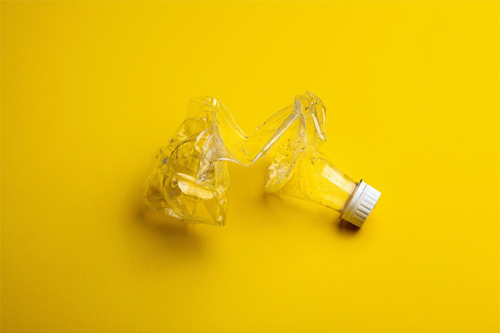Zero Waste and Sustainable Approach in The Hospitality Industry

Waste is an unavoidable factor in every household, restaurant, and bar. Zero waste is a worldwide thing. We have to rethink how we do things and ask ourselves the right questions about our daily tasks.
we don’t recycle items, there are many reasons why, and one of them is a lack of knowledge. Some other could be laziness or lack of space and time.
We have to reconsider the way we’re doing some tasks on a day-by-day basis. For example, do we really need single-use items? Napkins and plastic straws are basic items that can be replaced with reusable metal straws and coasters made of rattan or cork.
The United States produces approximately 34 million tons of food waste each year and 2.5 million plastic bottles are thrown away every hour in America. Those numbers are a huge thing, but that’s a fact.
What does it mean to be sustainable?
Sustainable means you have to be more inventive along with fresh and new ideas and expand your knowledge and the profit will follow.
Going zero waste is a movement and a step-by-step process that needs businesses to play a key role. Not all products have a zero-waste alternative and zero-waste products can be hard to find. But keep the goal in mind, and that’s sending as little to landfills as possible.
What does sustainability stand for?
Sustainability is all about satisfying our own needs in the way that we think of future generations’ ability to satisfy theirs. Applying sustainable practices can have a huge impact in the long run.
The whole concept of sustainability isn’t something new but surely it is a trend that has to be applied as soon as possible. There are a lot of reasons, like reducing costs, fewer leftovers, conserving energy, maintaining balance, minimizing pollution, creating new, original, and more complex flavors, etc.
Let’s think about for a second how many bars are producing leftovers right now and throwing them directly into the bin. How many fruit seeds and skins could be used as edible decorations? Exactly, the answer is most of them.
We can hear it everywhere, life without plastic is what we should strive for. But, do we care that much? Every person who is involved in the hospitality industry in some way should ask themself that question.
What are the 5 R's of sustainability?
According to roadrunnerwm.com, four actions should be taken before recycling, if it is possible of course. To take your recycling program to the next level, you should first refuse, reduce, reuse, repurpose, and then recycle.
REFUSE
Prevention is better than cure, this phrase tells everything. If we stop something happening in the first place, we’re making other things much easier for us.
We can insist on requesting returnable or reusable product packaging, when talking to vendors, for example. In that way, we’re setting standards and making smart purchasing decisions.
REDUCE
The next step is to reduce as much as possible single-use plastic products, cups, and plastic packaging. Our actions if taken properly will result in fewer waste materials. To avoid unnecessary waste, it is recommended to use the minimum amount of products required.
REUSE
It is almost impossible to imagine the amount of plastic that we consume daily. We live in a throwaway society influenced by consumerism. So, try to consider prioritizing reusable products instead of buying new ones. Find as many alternatives as you can.
REPURPOSE
Turn as many used items into attractions as you can. Use your imagination and creativity, because a lot of products have more than one purpose. Before making new supplies purchasing always check what can be repurposed.
RECYCLE
The fact is that a lot of cities are lacking comprehensive recycling facilities. But at the end of the day, by establishing an effective recycling program you can be surprised how much waste you can reduce. However, many tasks can be time-consuming and not easy at all.
How you can adapt various aspects of zero waste and a sustainable approach?
Water filtration machine
For example, a water filtration machine could pay for itself by selling filtered water to guests.
This way you’re providing high-quality water for your guests. A water softener is an efficient way to maximize the satisfaction of your guests at minimal operating costs. By investing in a water filtration system you are meeting customers’ high expectations and proving your desire to become an environmental-friendly facility.
Use entirely edible decorations
A perfect example of how to avoid the accumulation of waste. Cocktail or any drink decoration should be done in a combination of drink color, and glass type. Instead of swizzle sticks made out of plastic, you can use durable sticks with lemon zest attached. Furthermore, rubbing the orange zest around the edge of the glass could emit essential oils. Using fruit leftovers puts you in a position where you have a lot of room for imagination. A beautifully decorated drink will become the center of attraction for any occasion.
Prepare Infusions or syrups
Citrus fruits squeezed directly into drinks, peels, decorative slices, berries, or vegetables can be recovered. All of the leftovers you can save by collecting them into a container and after into the fridge. This way your leftovers are ready to be used as a preparation for syrups and infusions. Coffee grinds could be used as an addition to your infusions, for preparing aperitive or syrup. While doing this, be sure you’re using only the good stuff because nobody wants to hear they’re paying for something that is rescued from the trash.
Use recyclable plastic bottles- less carbon footprint
A fun fact here is that the recycling process of PET bottles is considered to be more environmentally friendly compared to glass bottles. In the process of recycling glass bottles, more carbon footprints are produced. So, recyclable plastic bottles may be a better option.
Start using paper drinking straws
Just think about it, Paper straws are a better solution than plastic ones but they tend to bend after getting wet. Plastic straws can release microplastic into your drink and because of that and many other reasons, they are banned. Edible straws on the other hand are completely chemical-free and biodegradable. Their flavor won’t affect your drink, and the colder your drink is the longer it’ll last. Another solution could be biodegradable straws. Made from agave fiber. Biodegradable straws are water-resistant, vegan, gluten-free, and with zero flavor. Durable straws are considered to be the most cost-effective solution in the long run because you can use them over and over.
It is not an easy task to develop new habits, but if you start with these sustainability measures previously mentioned, then it means you’re one step ahead of your competition. After a while, you’ll notice a slight sidestep in cost savings, and your sustainable drinks will still be delicious and unique as well.
The whole F&B industry has a lot of room for improvement. The completely zero-waste bar can seem like an impossible task. One of the pioneers in this field is ecoSPIRITS global. They start the low carbon revolution and operate in the premium spirits supply chain. The world’s first low carbon, low waste spirits distribution technology is an innovative closed-loop system.

